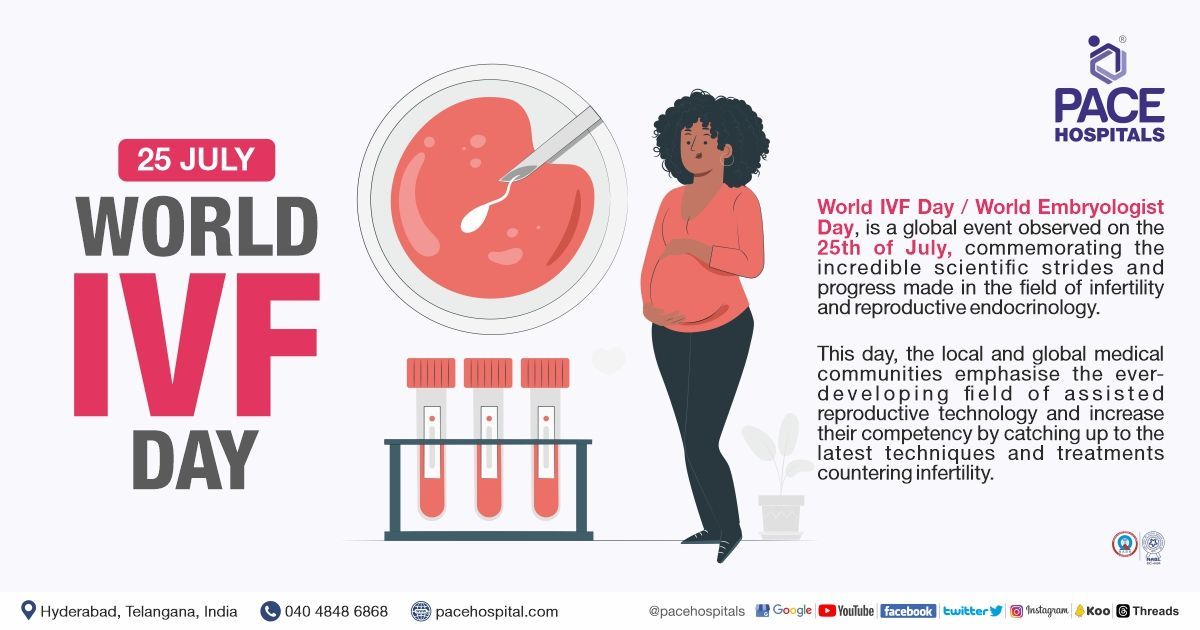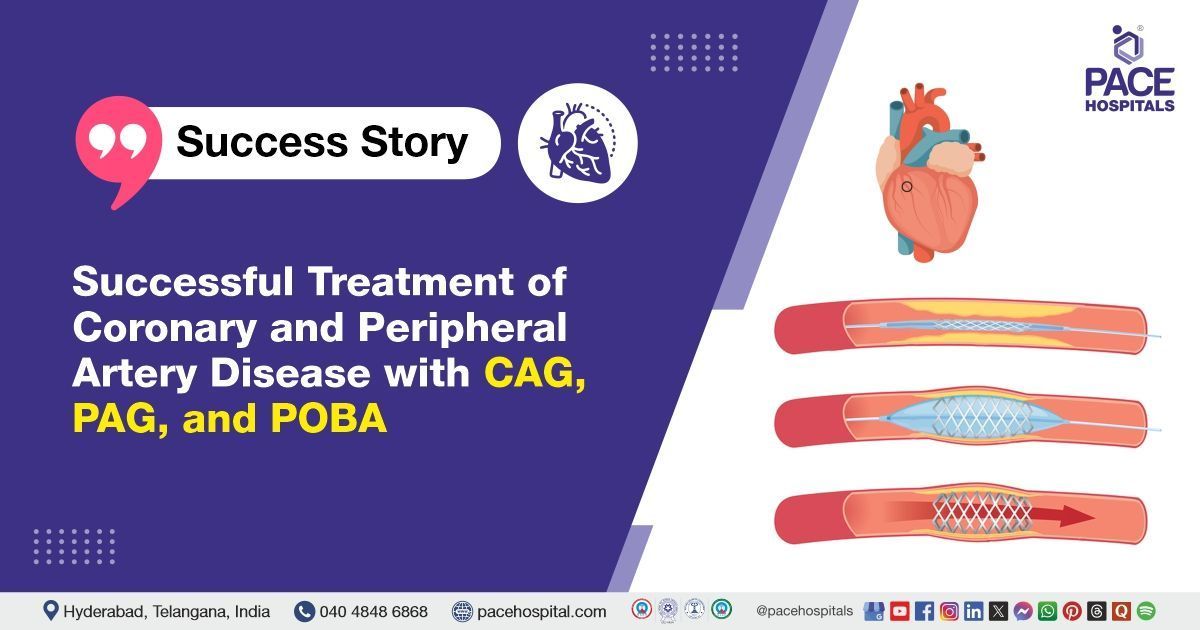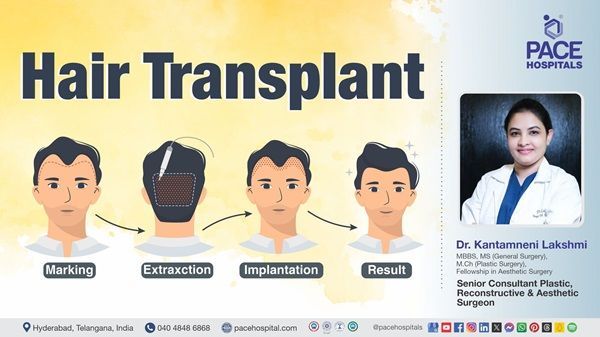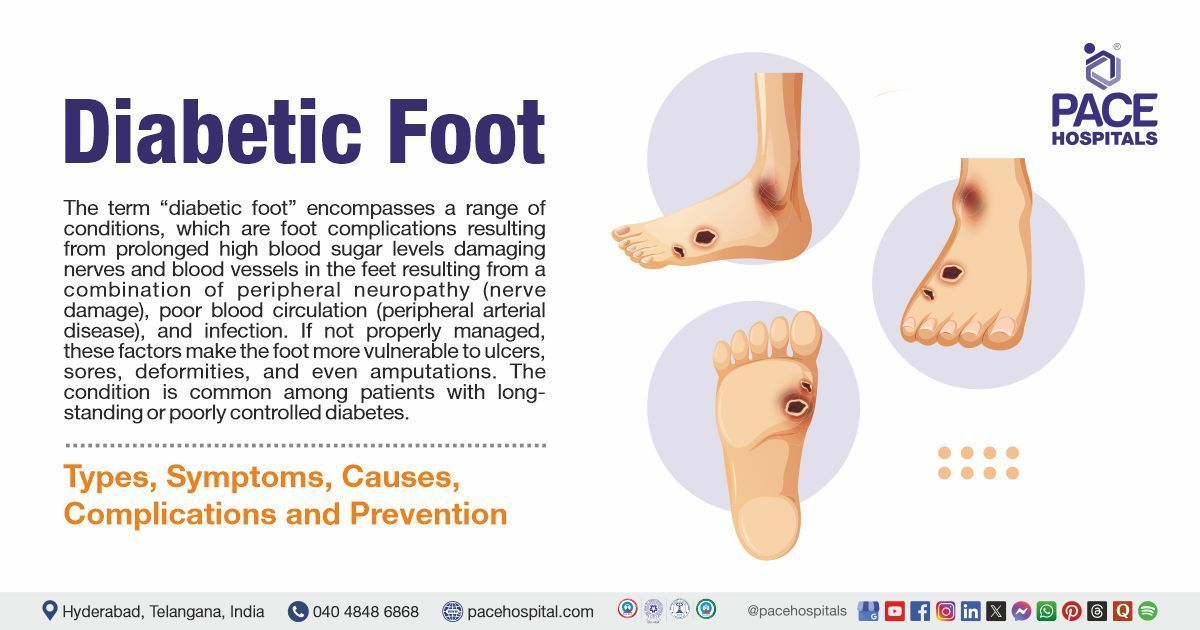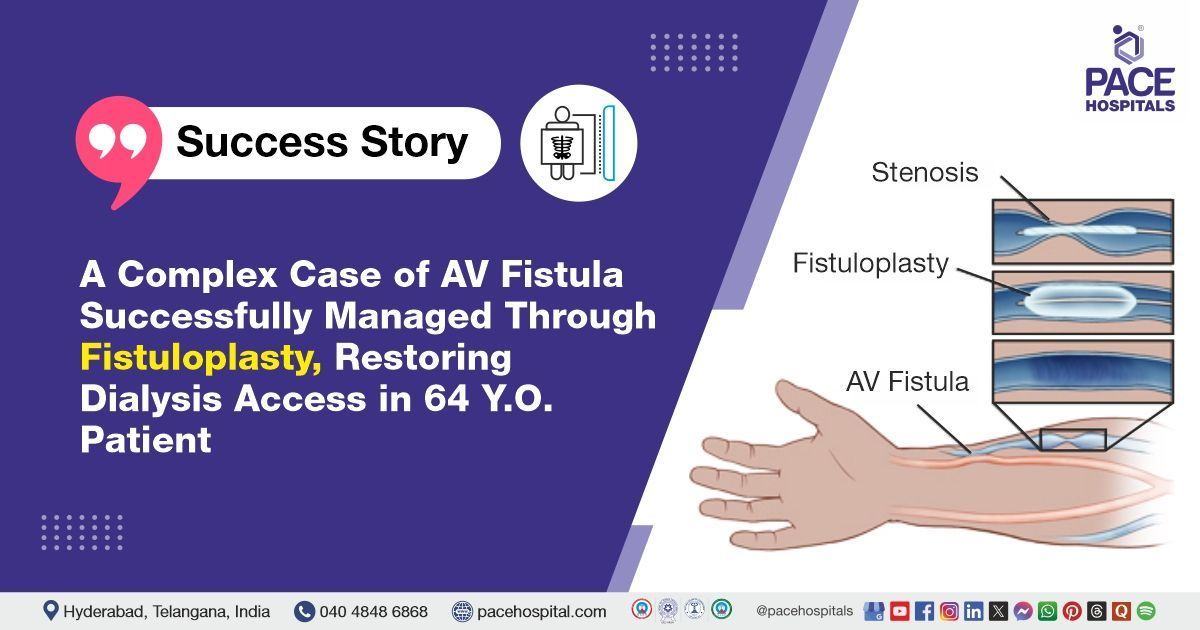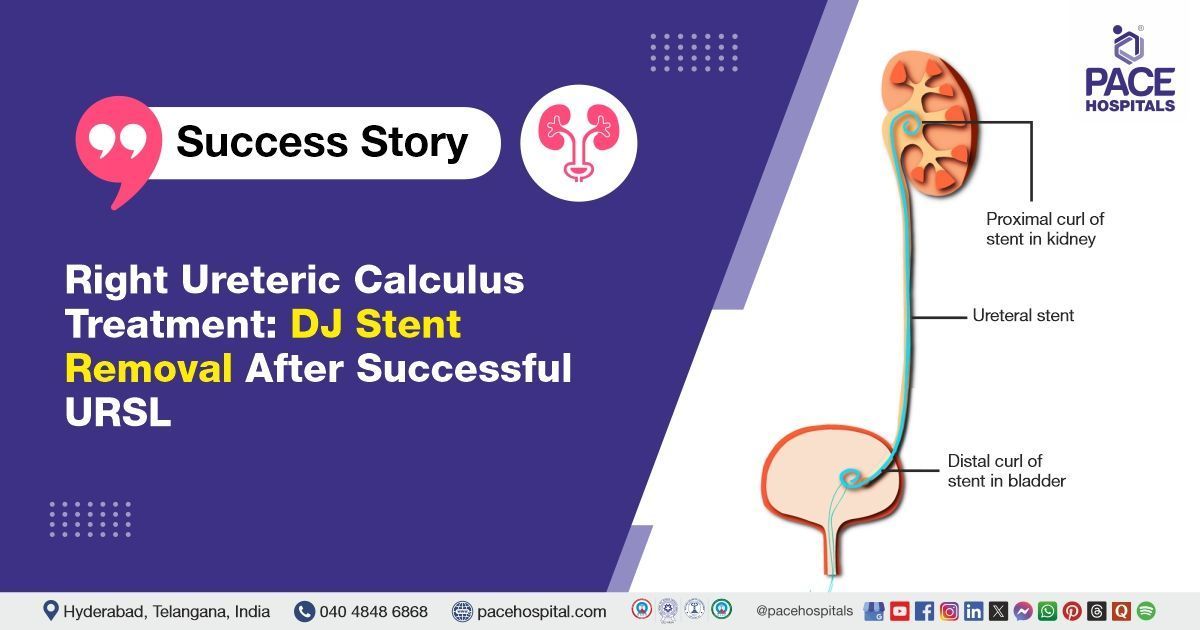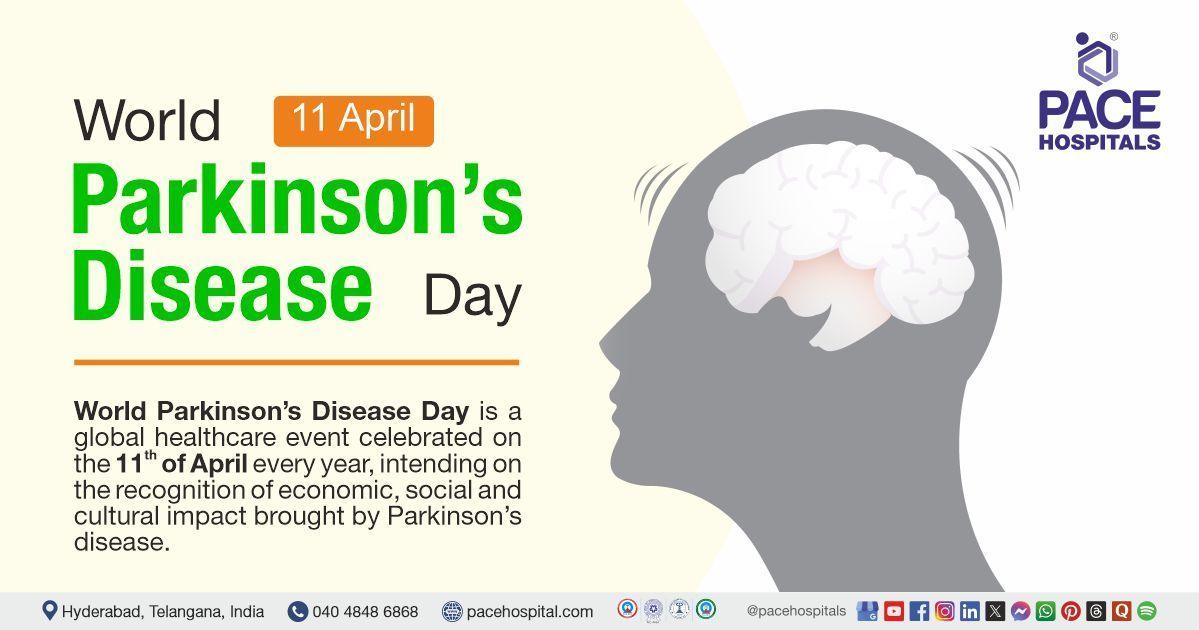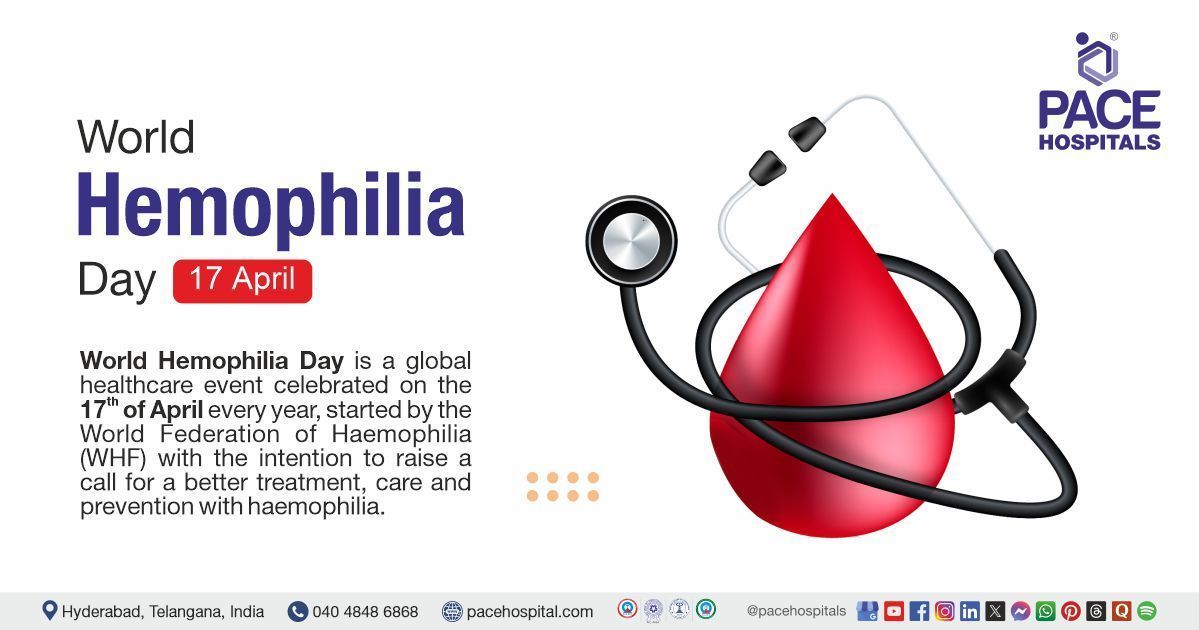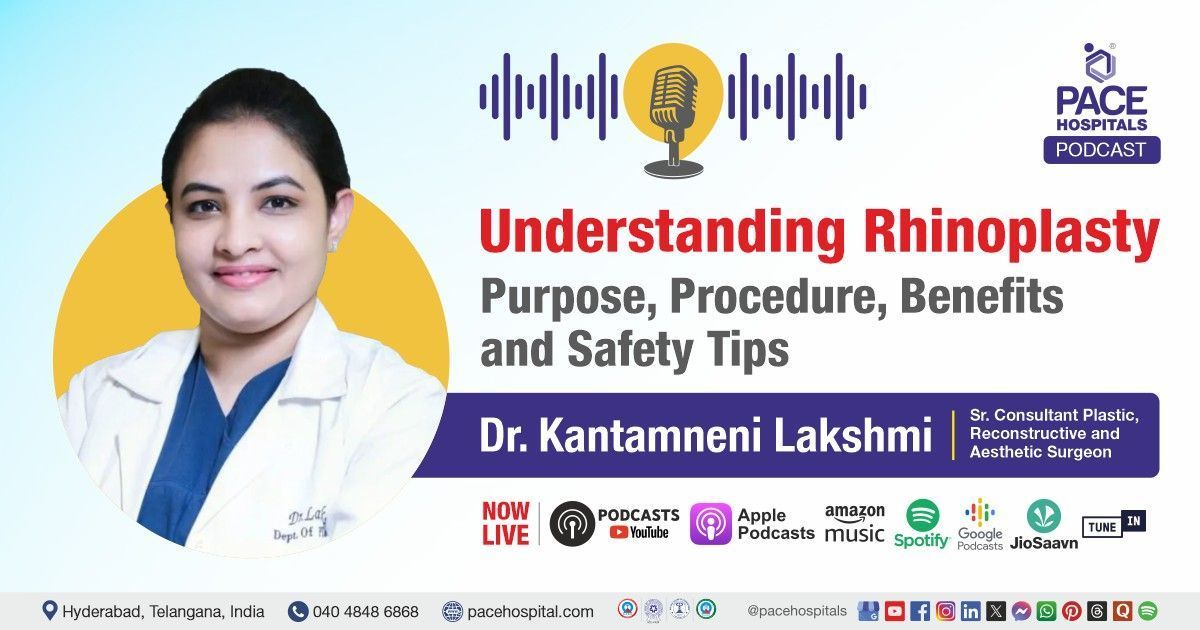World IVF Day 25 July 2023 - History & Significance
World IVF Day, or World Embryologist Day, is a global healthcare event observed on the 25th of July, commemorating the incredible scientific strides and progress made in the field of infertility and reproductive endocrinology. On this day, local and global medical communities, especially those dealing with infertility patients, gather around to emphasise the ever-developing field of assisted reproductive technology by conducting workshops, seminars, and symposiums within themselves to increase their competency by catching up to the latest techniques and treatments countering infertility.
In vitro fertilisation stands as a beacon of hope to the countless couples who wade through the dark sands of desperation in search of a progeny (child). The principle of assisted reproductive technology lies in handling spermatozoa, oocytes, and embryos, which are dealt with in vitro for reproduction. Medical interventions such as embryo transfer (ET), genetic testing, in vitro fertilisation (IVF), intracytoplasmic sperm injection (ICSI), embryo biopsy, preimplantation assisted hatching and cryopreservation of gametes/embryos brought joy through the laughter of the children into the lives of crores of childless couples.
History of World IVF Day
Dr. Robert Geoffrey Edwards, Dr. Patrick Christopher Steptoe and Nurse Jean Marian Purdy oversaw what was one of the greatest achievements of humanity. Through the determination and dedication of Dr. Steptoe, Dr. Edwards and nurse Jean Marian, they finally achieved the solution for human infertility through the birth of the world’s first ‘Test-tube baby’, Louise Brown, on the 25th of July 1978.
Dr. Patrick Christopher Steptoe was born in 1913 and is one of the pioneers in laparoscopy. His work on laparoscopy was so advanced that his seminal textbook ‘Laparoscopy in Gynaecology’ was regarded as the ‘bible’ of laparoscopic gynaecology.
In 1925 the geneticist Robert Geoffrey Edwards was born, gaining his PhD in 1955. His interest in human oocyte development and embryonic stem cells led him to be one of the pioneers of in vitro maturation of human oocytes from slices of human ovaries.
The meeting of Dr. Steptoe with Dr. Edwards and nurse Jean Marian Purdy paved the way for the eventual in vitro fertilisation experiments, aided by his mastery in laparoscopy. They performed their early pioneering work on human in vitro fertilisation in Dr Kershaw’s Cottage Hospital, England. Despite tasting failure during their early years, as none of their first 40 patients became pregnant, they continued.
Finally, their efforts paved off, when a patient Mrs Leslie Brown, after a total of 102 failed embryo transfers, including an ectopic pregnancy, became pregnant. Mrs Brown suffered a difficult pregnancy throughout her gestation, but ‘The Baby of the Century’ - Louise Brown was finally delivered by caesarean section on Tuesday, the 25th of July 1978. Since then, the fever of World IVF Day has caught on and has been celebrated ever since.
Falling fertility rates and the Significance of World IVF Day
Characterised by the inability to achieve pregnancy even after 12 months or more of regular unprotected coitus (sexual intercourse), infertility is a condition which can be seen in both male and female reproductive systems. This condition affects crores of people globally, impacting their families and communities. It was estimated that one in every six people of reproductive age worldwide would experience infertility.
For every 100 couples trying for children naturally, around 84 will conceive within a year, 92 will conceive within 2 years and 93 within 3 years. If couples have not been successful after 3 years, the likelihood of pregnancy occurring within the next year is 25% or less.
Populations in 23 countries, including Spain and Japan, are anticipated to decrease by half in 2100, due to decline in their fertility rate (the average number of children a woman bears). If the number falls below around 2.1, the population begins to shrink.
Women had an average of 4.7 children throughout their lives in 1950. The worldwide fertility rate nearly halved to 2.4 in 2017, according to a Lancet article, which predicts the plummeting birthrate to 1.7 by the year 2100.
In such dire situations, the common man, the administrative class, and other policymakers support various directions to increase the birthrate. In this perspectives, IVF and medically assisted reproduction plays a prominent role in elevating the status of the birthrate worldwide. World IVF Day or World Embryologist Day is a small gesture of appreciation to encourage the good work they were upholding.
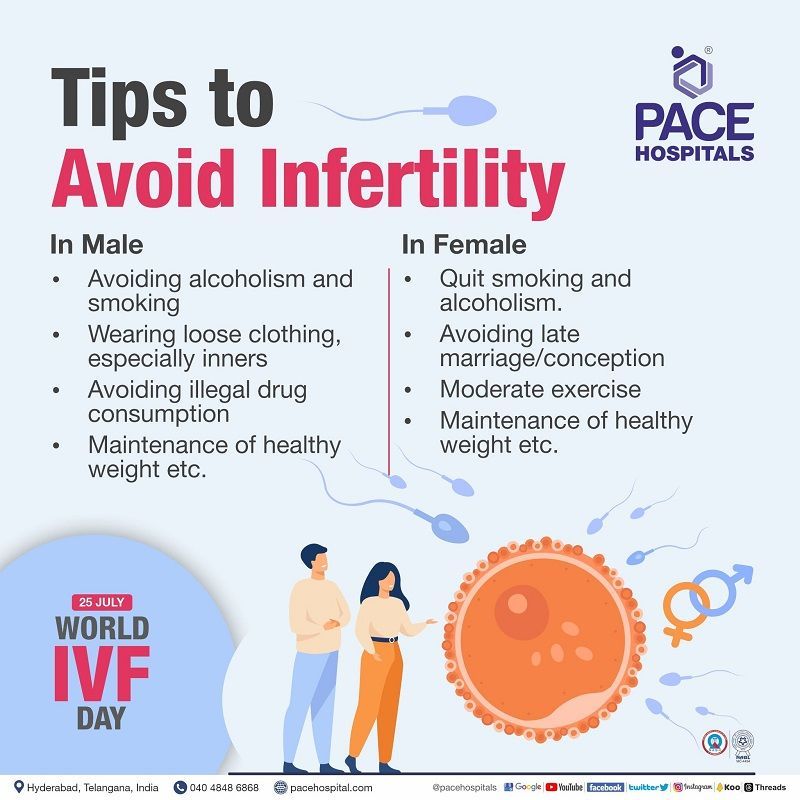
Tips to avoid infertility in female and male
A few of the tips which can be adopted by the female gender to avoid infertility is:
- Quit smoking and alcoholism.
- Avoiding late marriage/conception
- Moderate exercise
- Maintenance of healthy weight etc.
A few of the tips which can be adopted by the male gender to avoid infertility is:
- Avoiding alcoholism and smoking
- Wearing loose clothing, especially inners
- Avoiding illegal drug consumption
- Maintenance of healthy weight etc.
Request an appointment
Fill in the appointment form or call us instantly to book a confirmed appointment with our super specialist at 04048486868
Appointment request - health articles
Thank you for contacting us. We will get back to you as soon as possible. Kindly save these contact details in your contacts to receive calls and messages:-
Appointment Desk: 04048486868
Whatsapp: 8977889778
Regards,
Pace Hospitals
Hitech City and Madinaguda
Hyderabad, Telangana, India.
Oops, there was an error sending your message. Please try again later. We will get back to you as soon as possible. Kindly save these contact details in your contacts to receive calls and messages:-
Appointment Desk: 04048486868
Whatsapp: 8977889778
Regards,
Pace Hospitals
Hitech City and Madinaguda
Hyderabad, Telangana, India.
Our Locations – Find the Best Hospital Near You
Metro Pillar Number C1772, Beside Avasa Hotel, Hitech City Road, Near HITEC City Metro Station, Hyderabad, Telangana, India.
Mythri Nagar, Beside South India Shopping Mall, Hafeezpet, Madeenaguda, Hyderabad, Telangana, India.
040 4848 6868
Payment in advance for treatment at PACE Hospitals, Hyderabad, Telangana, India (Pay in INR ₹)
For Bank Transfer:-
- Bank Name: HDFC
Company Name: Pace Hospitals
A/c No.50200028705218
IFSC Code: HDFC0000545 - Bank Name: STATE BANK OF INDIA
Company Name: Pace Hospitals
A/c No.62206858997
IFSC Code: SBIN0020299
Scan QR Code by Any Payment App (GPay, Paytm, Phonepe, BHIM, Bank Apps, Amazon, Airtel, Truecaller, Idea, Whatsapp etc).

CONTACT US
Call: +914048486868
WhatsApp: +918977889778
Email: info@pacehospitals.in
FOLLOW US
SUBSCRIBE
Subscribe to our newsletter and stay updated with the latest health information.
Subscribe to PACE Hospitals' Public Newsletter
Thank you for subscribing to PACE Hospitals' Newsletter. Stay updated with the latest health information.
Oops, there was an error. Please try again submitting your details.
ABOUT US
QUICK LINKS
Disclaimer
General information on healthcare issues is made available by PACE Hospitals through this website (www.pacehospital.com), as well as its other websites and branded social media pages. The text, videos, illustrations, photographs, quoted information, and other materials found on these websites (here by collectively referred to as "Content") are offered for informational purposes only and is neither exhaustive nor complete. Prior to forming a decision in regard to your health, consult your doctor or any another healthcare professional. PACE Hospitals does not have an obligation to update or modify the "Content" or to explain or resolve any inconsistencies therein.
The "Content" from the website of PACE Hospitals or from its branded social media pages might include any adult explicit "Content" which is deemed exclusively medical or health-related and not otherwise. Publishing material or making references to specific sources, such as to any particular therapies, goods, drugs, practises, doctors, nurses, other healthcare professionals, diagnoses or procedures is done purely for informational purposes and does not reflect any endorsement by PACE Hospitals – your trusted hospital near me.

